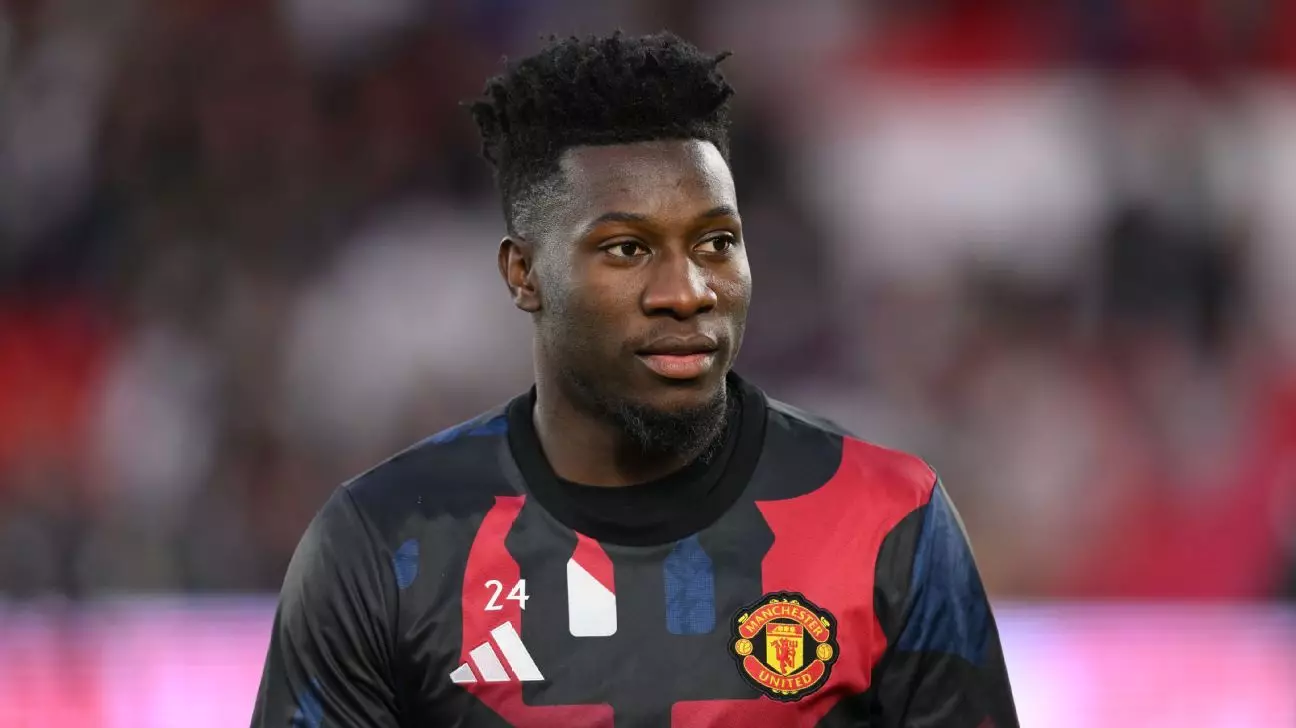André Onana, the Cameroonian goalkeeper for Manchester United, has recently faced considerable backlash from fans frustrated by his playing style. Critics argue that his tendency to hold the ball for too long disrupts potential counter-attacking opportunities. This tension has reached a boiling point, particularly during high-stakes matches such as the recent 0-0 derby against Manchester City, where audible discontent could be felt throughout Old Trafford.
In many ways, Onana embodies the classic struggle faced by athletes—finding the balance between personal judgment and external pressure. Fans, often passionate and vocal, expect immediate results without understanding the intricate decision-making process that athletes must employ in the heat of competition. In soccer, a goalkeeper’s decisions are vital and complex, involving anticipatory skills about the dynamics on the field.
Onana’s Thought Process
Rather than succumbing to the growing pressure from the stands, Onana has firmly asserted that he prioritizes his judgment over the immediate reactions of fans. “The decision I make is to help the team,” he stated, emphasizing his confidence in his choices. His approach suggests a profound understanding of the game, recognizing moments when it is crucial to slow down play—to let his teammates catch their breath or assess the unfolding situation. This strategy aligns with the concept that effective leadership in soccer often hinges upon a player’s ability to make decisions that may not conform to the crowd’s immediate desires.
Moreover, it highlights the often-underappreciated role of tactical awareness in football. Too often, fans focus purely on the aesthetic quality of the game—quick passes, fast breaks—but overlook the necessity of slowing the game down when circumstances dictate. As a keeper, Onana’s role is not merely reactive but also proactive; his intuition must guide him to recognize when to push forward or draw back.
The Road Ahead for Manchester United
Looking ahead, Onana’s resolve will be tested as Manchester United prepares for a critical match against Lyon in the Europa League quarterfinals. Positioned precariously within a competitive landscape, every decision Onana makes could significantly affect the team’s trajectory. He acknowledges the immediate threat Lyon poses, noting their impressive record. Still, he insists the focus should remain internal: “It’s more about us, what we’re going to do.”
By shifting the focus back to team dynamics, Onana embraces a leadership mentality that could galvanize his teammates. In football, much like in life, unyielding confidence in one’s abilities, combined with a collective focus on improvement, can often be the catalyst for success. This is a clarion call for unity and introspection as they face formidable opponents.
Ultimately, Onana’s conviction to maintain his style amidst criticism signifies not just personal resilience, but also a broader commentary on the nature of teamwork and the importance of fostering an environment where players can confidently make decisions without the weight of external judgment overshadowing their instincts. In this nuanced dance of football, patience, understanding, and self-belief shall reign supreme.

